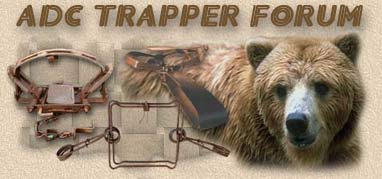This isn't 100% applicable, but my brother in law through the years though being full time USAF and around the globe ultimately also became a master of tile work and on the side did lots and lots of bathrooms and floors and so forth.
Now, as you'd imagine, many folks would like to see, or watch, or even lend a hand.
His sense of humor is quick and one of the best I've had the pleasure to hear in my lifetime.
His line when asked, "do you mind if I watch or lend a hand?"
Either of these he responds with the same response....
"Absolutely, if you'd like to lend a hand or help out the cost is double."
Obviously he states it with a light tone, but it gets the point across that if you the client want to get involved
in my process it is going to cost you more....
Since I don't trap on a daily basis that one I haven't dealt with, however I have had the condo complex that wants
their handyman to tag along while I do their bat inspection and exclusion work...
My reply in these situations has been that I work alone, my work is covered by my warranty and insurance and
that while I understand they'd like to add skills to their handyman, it is something I can't conform to.
Haven't had one of the few that I've stated this to not nod and agree even if their handyman was all excited about
doing this.
**
With bird exclusion I have had of course a number of folks believe that what I was prescribing they might tweak
themselves, or that they knew better. Just recently a client of mine from a few years ago when we launched had
a rogue pair of pigeons who decided even though all shaded and sheltered portions of the roof were excluded properly
they would nest on the open roof until a good site opened up... She could hear them up there and wrote me stating
"Good morning Justin, I noticed this morning I can hear the birds right over the bedroom area. I tried to turn on the furnace
(we had a few cold nights recently) and it didn't turn on and I fear the pigeons have entered the system and somehow caused it to not
work. Please come when you can and let me know what you think."
I wrote her back in the best tone and understanding nature I could (she is a super client, great lady) and slowly explained that the
exclusion materials prevent any entry under or within the ductwork and central air setup on the roof, next explained the central air
in on the roof but the furnace is in her home either in the garage or a utility closet.
Finally that I would get by and check on what was going on, but that before calling an HVAC tech to go check the circuit breaker box
and see if maybe that was it. I added that often I forget to check this simple thing in my house when things aren't firing up...
She replied an hour later, the breaker was flipped and she was thankful etc.....
***
Ultimately I think you need a stick or schtick (whichever one is more effective!)
You hit it on the head that when you catch overnight folks often look at you like that price was steep since it was so fast, however
the converse is eating into the bottom line.
What about putting a clause in your paper contract or stating in your verbal exchange if not using one for normal trap/capture
operations that states something like.
"While we understand the desire of some clients to move or modify our trapping equipment, you hired us to resolve your wildlife
issue professionally and within this time frame. Any modification or alteration to our equipment when set on your property extends
the potential timeline and therefore our operating costs that we must pass on to you the client...."
Lol!
I laugh as I write it, I'm not sure folks would take kindly to this and maybe Paul's method is better, though for a smaller operator I can
see having a "dump" trap that they get to play with being a hassle.
****
Another option that might help, what about putting a metal tag say 2x2" or bigger depending on size of traps that has some "NO TAMPERING"
statement?
We used to use trap tags that stated (these traps are being monitored by video cameras). Lost far less of these traps than others on public land operations in MI.
***
I guess it depends on how common as well, if it is commonly occuring the cost is potentially higher to you in terms of loss and then is worth
more effort and explanation to the client to get them to leave your gear where you put it.
***
Think I'm rambling now....

Justin





